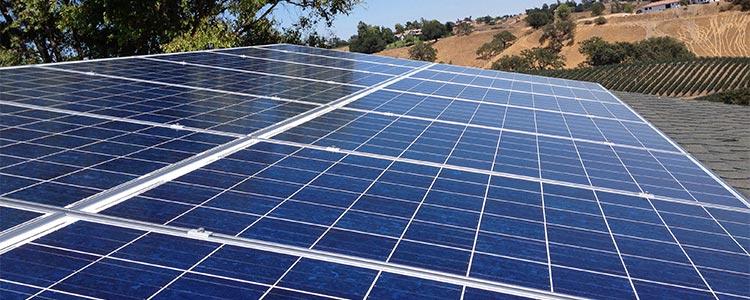The effects of clouds on a solar panel could then produce peaks at or above 50 percent more than its direct sun output.
How much do clouds lower efficiency of solar panels.
If there is sufficient light to cast a shadow in spite of the clouds your solar panels should run at about half of their full capability.
Incredibly your solar panels will put out their ultimate amount of peak power during cloudy weather.
Solar panels have been consistently increasing in efficiency at about 5 annually since 2010.
The maximum theoretical efficiency calculated is 86 8 for a stack of an infinite number of cells using the incoming concentrated sunlight radiation.
Some kinds of panels are better at receiving diffuse light.
The exact amount will vary depending on the density of the clouds and may also vary by the type of solar panel.
Solar panels can still can produce 10 25 of their typical output on a cloudy day.
Fortunately sunpower solar panels with a record breaking efficiency of more than 22 percent highest efficiency panels commercially available 1 use cells with a unique one of a kind design that capture a broader range of the sun s light including red and blue wavelengths.
But on a day with thick cloud cover power production will be much lower than average.
Yet when the sun shines through the clouds solar panels still get direct sunlight plus light.
Besides direct light solar panels will also absorb diffused light and albedo or reflective light.
As the sun moves into a hole between the clouds your solar panels will see something wonderful.
This claim is false.
But depending on the cloud cover and the quality of the solar panels efficiency can drop to anywhere from 10 to 25 percent of the energy output seen on a sunny day.
They found that solar panels in very dirty environments saw a 25 percent drop in efficiency from atmospheric pollution alone.
How much do clouds matter.
The thing is when clouds cover the sun the solar system doesn t stop working producing power.
A cloud may briefly cover the sun but we still receive light from the whole sky.
As the sun moves into a hole in between the clouds your solar panels will see something fantastic.
The thicker the clouds the less power the system will produce.
Combining these two effects a solar panel located in a heavily.
When the incoming radiation comes only from an area of the sky the size of the sun the efficiency limit drops to 68 7.
The average efficiency of solar panels falls between the 17 to 19 percent efficiency range.
The highest efficiency solar panels on the market today can reach almost 23 percent efficiency.
Eventually with heavy cloud cover solar panels will produce very little helpful power.
Yes just not quite as well on a cloudy day typical solar panels can produce 10 25 of their rated capacity.
As an example of diffused light.
They will drink in more energy than they could on a cloudless day.
It just reduces the output of energy.





























